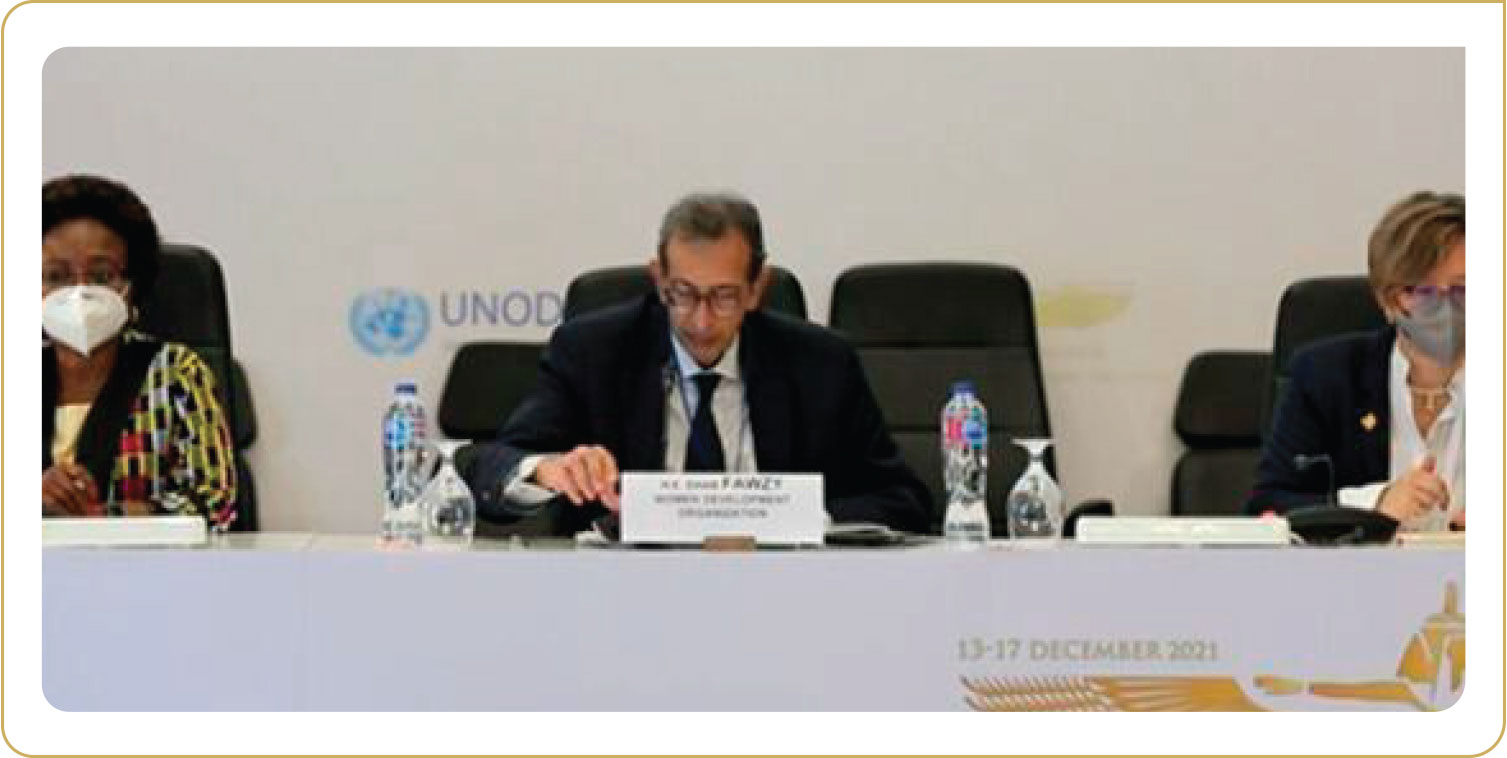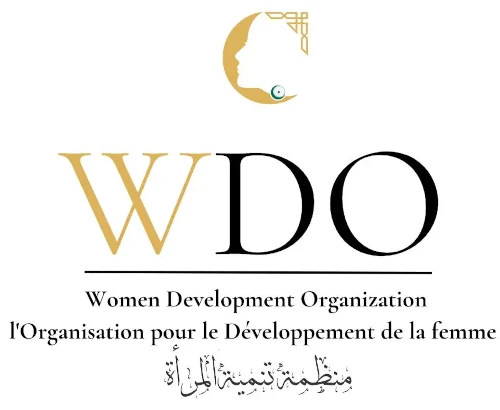In his welcoming remarks, Dr. Jürgen Zattler, Director-General for International Development Policy, 2030 Agenda, and climate, at the Federal Ministry for Economic Cooperation and Development (BMZ), Germany, mentioned that the United Nations General Assembly Special Session against Corruption, held last June, established a global commitment to improve our understanding of the linkages between gender and corruption. He said also that corruption is a global phenomenon, but it effects men and women differently as women are more effected by corrupt practices than men. He affirmed that more diversity in executive positions means less corruption.
During his presentation, as a key note speaker for the event, H.E. Ambassador Ehab Fawzy, the Deputy Executive Director of the WDO shed some light on the WDO’s mandate, objectives, and focused on the role of the WDO within the Organization of Islamic Cooperation (OIC) system as it is the center of the gender equality architecture of OIC. He also tackled the components of the first programmatic cycle of the WDO, with its four pillars on promoting women’s economic empowerment & financial inclusion, elimination of all forms of violence & harmful practices against women and girls, women’s leadership in promoting peaceful and inclusive societies, and the role of women in fighting and preventing corruption which were chosen carefully upon the needs of our member states and are online with the Organization of Islamic Cooperation Plan of Action for the Advancement of Women (OPAAW) and the different OIC resolutions.
The Deputy Executive Director displayed some of the challenges faced towards mainstreaming the gender perspective in the fight against corruption such as; lack of effective legal and insufficient technical expertise to prepare the groundwork at the national level; cultural and gender constraints that are not reflected in collecting data whether qualitative or quantitative; treating corruption as a Taboo topic, and lack of a whole-of government anti-corruption policies that are gender sensitive. Ambassador Fawzy highlighted the importance of awareness raising and capacity building for gender mainstreaming in anticorruption efforts and the importance of working collectively whether government or civil society in order to succeed in the fight against corruption, without prejudice to governments as main duty bearers.
Ms. Lilian Ekenayanwu, Head, Technical Unit on Governance & Anti-Corruption Reforms (TUGAR), Nigeria, presented the findings from an updated study from Nigeria on how women are impacted by corruption. She confirmed the importance of disaggregation of data in mainstreaming the gender perspective in anti-corruption efforts. Ms. Monika Bauhr, Senoir Lecturer Department of Political Science University of Gothenburg, presented the evidence from European regions and beyond on the share of women in office and corruption levels; mentioned that corruption is also an obstacle to the recruitment of women; discussed how women candidate advantage be explained; and concluded that the type of explanation matters for understanding the effects of recruiting more women into office.
The event was concluded by an intervention from Ms. Jennifer Sarvary Bradford, Crime Prevention and Criminal Justice Officer at UNODC presenting the preliminary findings of their research into identifying the gender entry points in UNCAC together with other initiatives such as the creation of a public database that includes all the research reflected in the 18-page bibliography of The Time is Now (as a starting point). She said that these initiatives are also intended to move from word to action and anchor the inclusion and considerations of how to address the gender dimensions of corruption in the anti-corruption efforts of all Member States of the UN, reaching beyond the States parties to the UNCAC.



